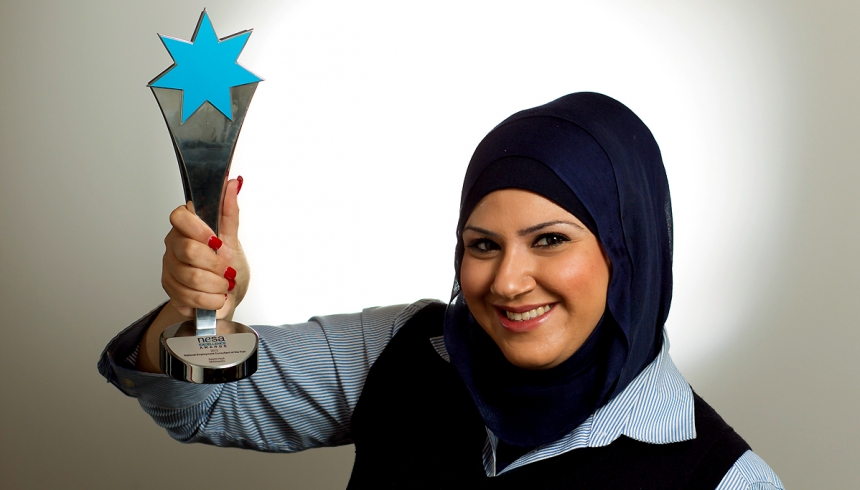Like many true blue Aussies, Saada Houli attended her local Catholic primary school. She enjoys a meat pie at the football and “bloody loves this country.”
But the Muslim, Lebanese-born employment consultant has experienced more than her fair share of racism despite her typically Australian attributes.
Houli, 28, came to Australia as a three-year-old when her parents fled Lebanon during the Syrian occupation in the 1980s.
They moved to Fawkner. Her father began work in a factory and she and her two elder brothers attended the Catholic primary school.
As the only Muslim pupils, racism simmered in the classroom, making primary school a very lonely place. “I had no friends because I was different, and it was obvious that I was different,” she said. “But I didn’t know what racism was then.”
It wasn’t until midway through studying a bachelor of arts degree at La Trobe University some years later that Houli started wearing a headscarf.
“When I put the headscarf on I knew I was symbolising Islam. I wanted to change people’s views; you can still be funny, educated and relaxed,” she says.
But the move brought with it vitriolic reactions. Houli was spat at on her way to university, called a terrorist while eating a meat pie at Etihad Stadium during a match between Essendon and Geelong, and told to “take that shit off your head and go back to your country” by complete strangers.
Yet she never let it get to her. When people question why she wears a headscarf, she says it comes down to choice. “If I want to cover up it’s my choice to do so. Just with how I don’t judge people, I would expect the same respect as well,” she says.
For the past three and a half years, she has applied that same strength of character and resilience in her professional life.
A string of jobs led her to apply for the position of receptionist at Matchworks, an employment services provider that specialises in support for people with disabilities. She landed the job, quickly rose up the ranks and now helps refugees, people with disabilities and others with mental illnesses or drug addiction find work.
Last month, her commitment, kindness and patience was rewarded when she was named the 2013 Employment Consultant of the Year at the National Employment Awards.
“I deal with ‘stream four’ clients; those with the most barriers. These clients have no motivation or self-esteem. It’s hard to build a rapport with them. But sometimes all they need is work,” she says. “But it’s also not just about finding them a job. That’s the best part of it and that’s why I love it.”







